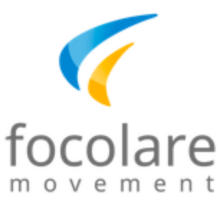In dialogue
The golden rule
But someone here might ask me: “Is love, loving one another, compatible with the lifestyle that our religious traditions have handed down to us? Yes, it is! Look into your sacred scriptures and you will find – in almost all of them – what is called the “Golden Rule.” Christians know it in this form: “Do to others as you would have them do to you.”2 In Judaism, it says: “Do to no one what you yourself dislike.”3 In Islam: “None of you is a true believer if you do not desire for your brother what you desire for yourself.”4 In Hinduism: “Do not do to others what would make you suffer if it were done to you.”5 All these phrases mean: “Respect and love your neighbor.”
From Chiara Lubich’s talk to the young people gathered at the Colosseum on 26 May 2002
IN communion
“I – my brother – God. We go to God together with our brothers and sisters. We go to God through other people”,Chiara Lubich explained in 1955.
The main characteristic of the Focolare spirituality of unity is that it is communitarian.
It leads to a life of communion among individuals, peoples and nations and thus is something the world really needs. However, the path of communion does not exclude the contribution made by individuals. Rather, living in communion enhances it and enriches the entire social body.
In dialogue
The Focolare spirituality has spread throughout the world and has given rise to various forms of dialogue.
The Movement is engaged in dialogue among movements and new communitieswithinthe Catholic Church and is also in dialogue other Christian Churches and ecclesial communities. Relationships with the faithful of the world’s religions have paved the way to a broader dialogue among the major world religions.
Collaboration between believers and those who profess no specific religious faith has given rise to a fruitful dialogue and concrete projects for peace and justice in the world. A dialogue has world of culture opens its eyes to new insights.
Church as Communion
The Movement’s commitment to live for unity causes it to aim at ccommunion between ecclesial Movements and new Communities born within the Catholic Church to discover and value the gift that each reality holds within itself, gives to others and with which it enriches society.
Interreligious dialogue
In a world undergoing such great change and becoming always more multicultural and multi-religious, the Movement promotes a dialogue among the faithful of various religions, eading to an increase in brotherhood and peace in the world, rather than being a cause of war and divisions.
Ecumenism
The Movement journeys on the path of ecumenical dialogue with Christians of approximately 350 Churches and ecclesial communities. This ecumenical journey is based on the “dialogue of life”, an experience that flourishes from getting to know one another and sharing thoughts and experiences about living the Gospel.
Persons of no religious affiliation
The Focolare Movement is in contact with a large number of people who have no particular religious belief but who follow their conscience and are faithful to the great common values of humanity. Believers and people of non-religious convictions work together to compose the human family in fraternity.



